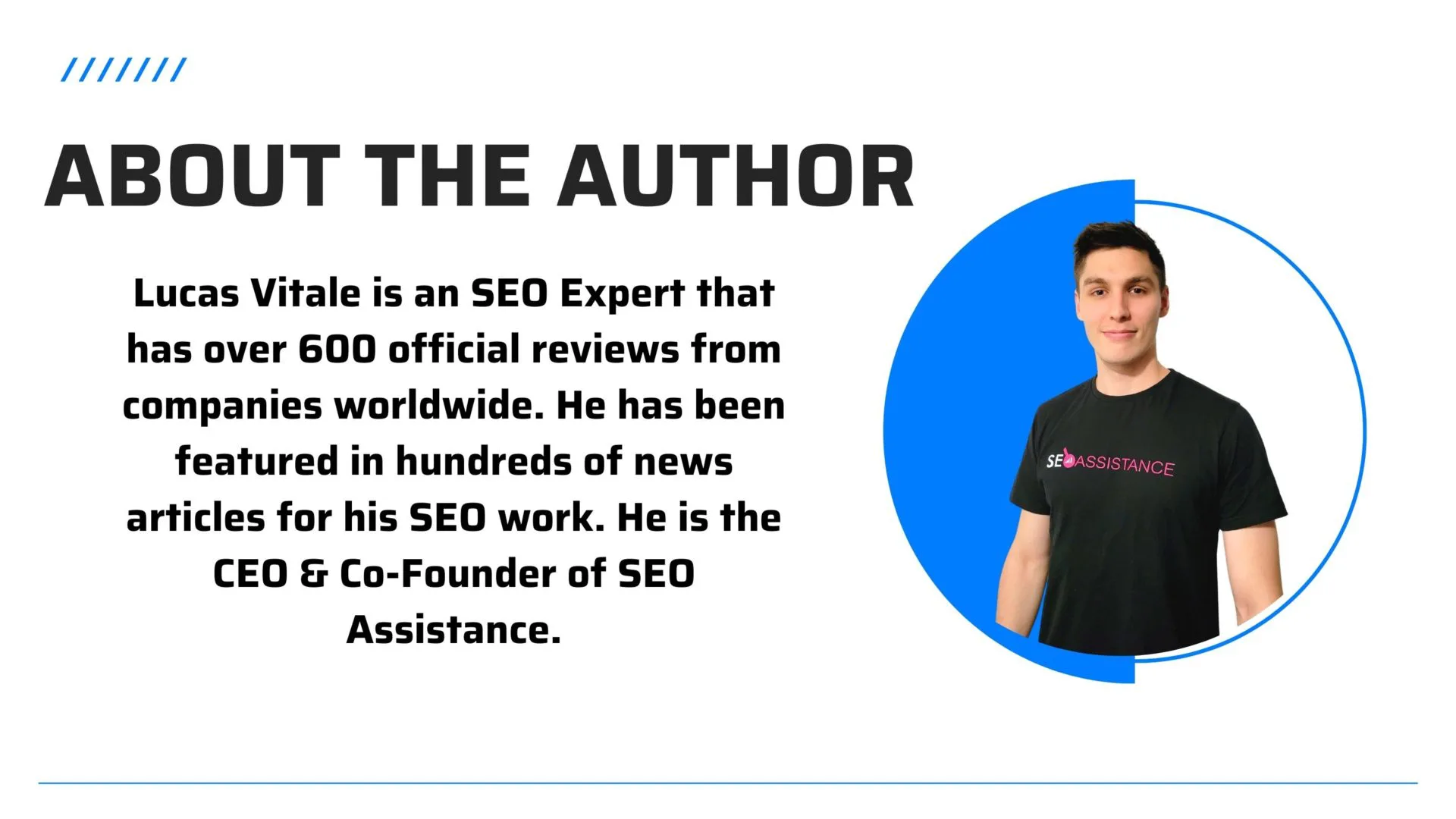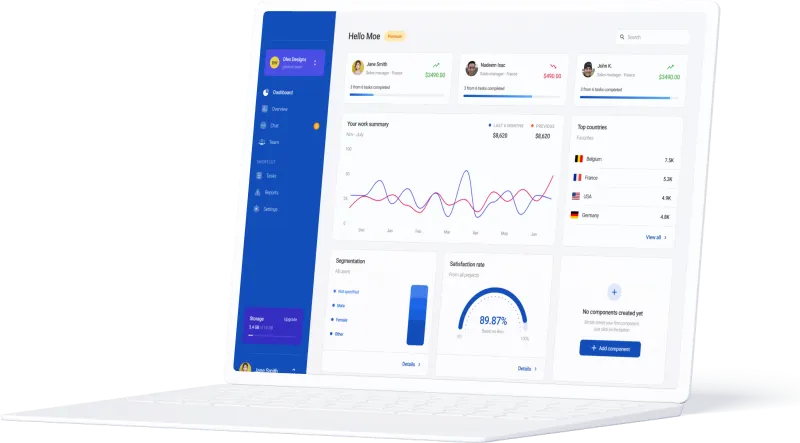Why Is On-Page SEO Important?|Guide With SEO Assistance:
Learn About On Page SEO

%201.webp)

Why Is On-Page SEO Important?|Guide With SEO Assistance:
Complete Experts Guide About Why On Page SEO Is Important:
On-page SEO is the process of optimizing a website to make it easy for search engines to crawl and index. If you are not familiar with this concept, then this post will help you understand why on-page SEO is important.
Most people think that off page SEO is more important than on page SEO, but they couldn’t be more wrong. In fact, in many cases your site’s ranking position depends solely on how well optimized your pages are for search engines.
This article shows you what elements should be included in every web page so that it can rank higher in Google and other major search engines. I hope that after reading through the examples below, you’ll agree with me – on-page optimization matters!
So, why is on-page SEO so important?
There are several reasons:
1. On-page SEO is essential for ranking in search engines.
2. On-page SEO can help you improve your website’s usability.
3. On-page SEO can help you achieve a higher click-through rate (CTR) in organic search.
4. On-page SEO is cost effective and doesn’t require professional services to execute.
5. It positions your website for competitive advantage over your competitor’s websites who don’t implement on-site SEO.
SEO isn’t easy. But if you focus on getting the basics of on page optimization right, you’ll be light years ahead of your competition who still treat SEO as a “black art”. So what are the basics that you need to know?
We’re going to take you through 10 essential On page SEO tips that will help your pages rank better in search engines.

1. Research Your Keywords and Use Them In Your Content
One of the most important things you can do for on page SEO is to research the keywords that your target audience is searching for, and then use those keywords throughout your content.
This doesn’t mean stuffing your content with keywords. That approach is considered old school SEO and it’s not what you should be doing. Instead, use the right keywords in the right context to write naturally using vocabulary that people actually use when they search for information like yours (i.e., make your content true to your brand).
Here are a few examples of where you can use keywords:
- The homepage title tag
- Each page Title tag
- H2 headings
- H1 heading (usually only one h1 per page)
- Page URL (should match keyword usage elsewhere on page)
- First paragraph of text content (MUST be relevant to keyword used in title tags & URLs!)
- Keyword rich images alt tags.
2. Select Good Domain names:
This factor of selecting a good domain name has its own standings in higher ranking of websites. Because it describes the whole summary of the website of what it is about.
3. Improve Your Site’s Usability– On-Page SEO
Site usability is another important aspect of on page SEO that often gets overlooked. But if you want people to stick around on your site, you need to make it easy for them to find what they’re looking for.
According to usability expert Jakob Nielsen, “Users rarely read articles from beginning to end. Instead, they skim the opening paragraph and then scan the headings and subheadings looking for the specific information they need.”
That’s why it’s important to make your site easy to navigate by using clear and concise headings and subheadings, as well as lists and images.
You can also improve usability by adding a search function to your site and making sure all of your content is easy to read on different devices (including mobile).
4. Optimize Your Page Titles
Page titles are one of the most crucial on page SEO factors because they’re one of the first things that people see when they search for information online. That’s why it’s important to use the right keywords in your page titles (H1, H2, and subheadings) to make your content easy for people to find.
You should also keep your titles under 65 characters so there’s no chance that they’ll get cut off in search results. According to Google, “When it comes to how you can best present your page title, we recommend keeping it short and sweet.”
Here are a few tips for On-Page SEO writing effective titles
- Make sure title tag keywords match the user intent behind the query
- Perhaps consider using the target keyword as the first word of the title.
- Include appropriate call-to-action or value proposition if applicable.
- Keep text readable & scannable by avoiding excessive punctuation, symbols, numbers.
- Optimize for viewers, not search engines
- Build your brand and identity.
5. Meta Description
A brief, well-written description of the page’s content is necessary to catch the attention of the user.
6.Slug:
This is also an important part of SEO. Optimizing slug is as Important as the article.
Slug should always be smaller and understandable. It should not contain any special letter in it.
7. Write Quality Content:
That’s Relevant To Your Visitors Search engines place a lot of value on content because it tells them what your site is all about. So if you want to rank high in organic search results, you need to produce quality content that’s focused around a central idea or theme.
You also want the content on your pages to be useful for your audience so that they’ll share it with their friends and come back for more in the future.
Here are a few tips for producing high quality content:
- Make sure every phrase has meaning (i.e., avoid repeating keywords over and over)
- Be helpful by answering questions related to main topic
- Avoid overuse of keywords
- Focus on the user’s perspective and experience
- Avoid using general terms that lack descriptive value.
8. Optimize Images:
For Better Rankings Websites that include lots of images tend to rank higher than those that don’t. That’s because Google considers images to be a valuable source of information. So if you want your website to rank higher in search results, you should optimize your images for SEO purposes.
Here are some tips to help you do that:
- Name all images with relevant keywords included in the filename – Include alt text that includes your target keyword so crawlers can understand what each image represents
- Use keywords as filenames where possible, i.e., “home_banner.jpg” for a banner around the home page – Optimize images on landing pages so they load faster 8.
9.Expertise, Authority and Trust (E-A-T)
It is a critical component for ranking in Google search. In order to demonstrate your website has E-A-T, you must provide high-quality content that is authored by experts, cited by reliable sources and trusted by your audience.
10.Conduct A/B Testing To Improve Rankings:
Many small business owners make the mistake of thinking that ranking high in organic search results is an indication of success. While it’s true that there’s a significant correlation between rankings and revenue, if your site doesn’t rank at all, it will be very difficult to attract customers.
That’s why it’s important you track your site’s rankings using a tool like SEMrush, Moz or Ahrefs. This way, you can identify which keywords are driving traffic to your site and optimize for them accordingly.
Conclusion:
If you’ve never done any SEO work before, it can be daunting to know where to start. But don’t worry! We’re here to help with the basics of on-page SEO so that your website is optimized from a search engine perspective and ready for Google’s latest algorithm updates.
All factors are important in terms of optimizing your site for general web browsing as well as ranking higher in SERPS (Search Engine Results Pages) listings.

Want to hire us to do your SEO for you?
Simply fill out your information below. We'll audit your SEO live on video and send it to you free of charge. Simple as that.


